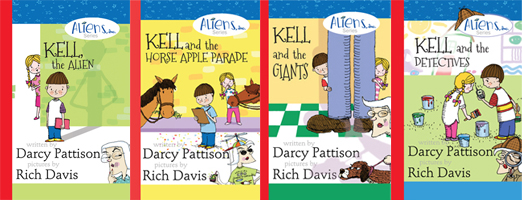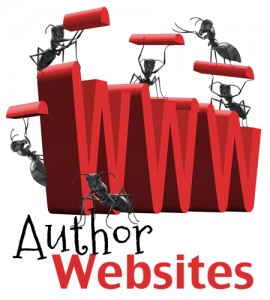Try Book 1 for Free

Thanks to the computer industry, we no longer have first readers, we have beta readers. Early versions of software that engineers expect to be riddled with problems were called beta versions. Beta is the second letter in the Greek alphabet, so presumably, the alpha versions were kept all in-house. Betas were the first public versions to be released.
The terminology has come over to writing and we now have beta readers. The analogy holds in some ways: the versions we send to outside readers probably isn’t the “alpha” version; instead, it’s a version that is ready for a public audience—but not ready to be published. We expect problems: typos, grammar slip-ups (Grammar Queens, I Love You!), plot holes, character inconsistencies, factual errors, and so on.
What do you want from your Beta Readers?

Factual details. My WIP is set on Bainbridge Island, which sits in the middle of Puget Sound near Seattle, WA. I’ve visited a couple times because my brother- and sister-in-law live there. However, I’ve not lived there, and I’m not grounded in everything BI. I’ve asked them to read through for factual details related to the setting.
To write this story, I drew on my trips to the area, as well as maps, views from Google Earth, historical accounts of the area, writings about the area, information about the local flora and fauna. I’ve done my homework. But there’s nothing to beat living in the locale for years. I would never have dared to set the story in the area except I knew I had these two gracious beta readers.
Bored. I also asked them to flag places they were bored. Wow! Do I need this one. The overall pacing from chapter-to-chapter, and the local pacing from paragraph-to-paragraph both concern me. I want the story to pull a reader along without a pause. If a beta reader is bored, I need to know. I can fix it, using a variety of tools. I just need to know where to work on it.
Confused. Likewise, if the flow of the story confuses the reader, I need to know. Of course, there may be places you WANT the reader to be confused. I’m not talking about that. I’m looking for places where the reader has no idea what is happening. Again, I can fix it: I don’t want beta readers to suggest HOW to fix it. I just want to know where to pay attention.
Consistency. In characterization, I find my biggest problem is consistency in portraying emotions, motivations, reactions and so on. Part of the process of writing is to find these deeper issues within your character, and for me, I often find them late in the story. That means I have to go back and make sure I’ve set up a motivation and expressed it consistently across the story. And sometimes, I miss something.
While Beta Readers Read
This time, I’m trying not to work on the story while the beta readers do their thing. That doesn’t mean I’m not thinking about the story. On the contrary, it’s in the background of my thoughts all the way.
We went to see The Avengers movie last week. If you saw it (SPOILER ALERT), there’s a huge action scene at the end with all the Avengers protecting the explosive device while robots come at them. It’s a great moment because the team has come together and they are working in concert. Besides that character moment, it’s also a huge action scene. And I mean huge. I almost turn away these days at the fast-paced fighting because there is moment after moment of continuous fighting. The last Transformer movie struck me this way, too: when there’s too much action, it deadens the moment for me.
But it also gave me a new perspective on the ending of my story. The hero doesn’t take a big enough part in the action. He is there (hurrah!). He is active (hurrah!). But his parents get in the way. I need to get rid of them and pit him directly against the villain.
In other words, I hit the target with the ending, but it’s not a bulls-eye, yet.
That’s the sort of thing I’m thinking about while the beta readers read. Where have I hit the target, but I’m not hitting the bull’s eye?
I may not be typing words into a program about the story during this time, but I’m working on it. When I get it back, I’ll have a flurry of revisions to do. Isn’t it great?

Dear Writers and Editors,
I know that one strategy that you use to check the accuracy or authenticity of a manuscript with characters who are "other" to the writer is to have someone of that "other" group read the manuscript. In the language used in the industry, this means to get a "beta reader" for the manuscript.
I've read several author notes in the last couple of years wherein the author states that they had beta reader(s) from the Native communities featured in their books.
Writers: are you creating a Native character in your story? Editors: is your author including Native content? This blog post is for you. There are several things you should know about selecting beta readers.
Research universities across the United States have guidelines specific to populations that have experienced abuse by researchers. These include children and minorities. These guidelines are also published by government agencies. Do a search and you'll find them. There are many things to consider. A key thing to consider is how the research will impact that person. May they be inadvertently hurt by participating? Are there things you'll do, that you did not realize, that could cause harm? These guidelines aren't just about medicines. They apply to educational researchers, too, who--for example--want to interview youth about their experiences.
You may not work for a university and therefore think you're exempt from those guidelines. When you're doing research within a Native community, however, there are tribal protocols that you must follow.
Native Nations across the United States also have guidelines in place to protect their members/citizens and the tribe's intellectual and cultural property (and yes, that includes traditional stories). Before you are pack your bag and head to a reservation, Native center, or museum, find the website of the specific nation you're planning to include in your story. Many have guidelines posted on their websites, or phone numbers of people you can speak to in advance of your trip.
Some universities have the protocols for nations near them at their site. Northern Arizona University, for example, has the protocols for the Hopi Nation on the university website.
The National Congress of American Indians (NCAI) and Montana State University's Center for Native Health Partnerships have a publication that is an excellent overview of working with Native Nations: Walk Softly and Listen Carefully. (Note: if the link doesn't work, write to me directly and I'll send you the pdf.)
Speaking to a tour guide at a museum is not enough. They are not the person with the authority to work with you. Obviously they're interested in education but there's an important distinction in what they do, and what a tribe's research board does.
Perhaps you are a current or former teacher of Native kids, teens, or adults. Your impulse may be to ask them to be a beta reader. In that relationship, there may be a huge power dynamic that you're unaware of. If they consent but then seem to be avoiding you or putting you off, I suggest you take that as a sign that they don't want to hurt your feelings or the relationship you have.
Most writers, editors, critics, and scholars (like me) have studied literary criticism, critical theory, social justice, racism, and the like. That may not be true for your beta readers. Be especially mindful of that difference. If, however, your teen/Native beta reader is involved in Native activism, the chances that you'll get good feedback are better.
In my second paragraph above, I noted authors that have used a Native person as a beta reader. Last year I did a very detailed analysis of an ARC of Sappenfield's The View From Who I Was. She thanked a beta reader in the ARC. My analysis circulated widely amongst Native networks, including amongst students and staff at the school Sappenfield visited for her research. In the published copy of Sappenfield's book, the name and identity of the beta reader are gone. I don't know why, but perhaps you (writers and editors) can find out from Sappenfield or her editor.
Years ago, I pointed to tribal protocols during a discussion on child_lit (a listserv). One response was a somewhat snarky "how are they going to enforce it"? It struck me, then, as dismissive of something vitally important to respectful ways of living. We can do better than that snarky response, right?
The point is--take care in selecting beta readers for your manuscript.
Back in the Dark Ages, when I was getting started writing, I never heard anything about beta readers. I barely heard about critique groups. But everyone seems to have BRs these days, and, since I like to maintain the mind of a beginner, I decided I wanted some, too. So when I finally finished a draft of a piece of scifi flash fiction that I'd worked on for the better part of a month, maybe more, I contacted a couple of family members who are science fiction readers and asked them to act as my beta readers. I even used the term, thinking it would make what I was asking them to do sound very professional and technical. Here's what happened:
Beta Reader 1 told me that no one would know what two words in the first sentence meant. I was able to fix that. Evidently the other 898 words were golden.
Beta Reader 2 didn't have time to read the story. I think he might have been afraid to.
I find the whole beta reading thing awkward. Remember all those times people asked you to read something they wrote and it was dreadful and then what were you supposed to do? Yeah, now you're the one asking someone to do the reading, and the people you're asking want to run for their lives. Maybe your writing is as wonderful as you think it is, but your potential beta vict--readers don't know that. Because I like to maintain the mind of a beginner, I'm open to the possibility that maybe I'm wrong.
Additionally, critiquing writing is an acquired skill. The ground isn't thick with trained beta readers.
So this wasn't a particularly successful experience. However, I met with a critique group in August, and I'll be going back in October. Things are looking positive with that, and after a couple more meetings, I'll report on my progress.
This month-long series of blog posts will explain author websites and offer tips and writing strategies for an effective author website. It alternates between a day of technical information and a day of writing content. By the end of the month, you should have a basic author website up and functioning. The Table of Contents lists the topics, but individual posts will not go live until the date listed. The Author Website Resource Page offers links to tools, services, software and more.
Calling All Grammar Witches: Beta Readers for Your Site

You’re just days away from launching your new and improved Author Website. Now’s the time to proofread, test links and make sure everything is working! Recruit friends (and enemies?) to click around and make sure the site works.
- Links. Click on every single link to make sure it works.
- Grammar and Spelling. Grammar Witches, i love you. I’ll do everything you tell me to do.
- Photos. Add photos to every page, because it makes it more appealing.
- Tweak posts. OK, you’re a writer. You will be tweaking every single post. Just don’t stress out over this; write the best you can and let it go.
Fix everything that is reported to you. Make sure everything is in order for launch.



Ask yourself these questions before you submit to an agent or editor…
How many competitive books have you read in your genre to establish criteria for your manuscript?
What books did you use as models for your manuscript?
How closely does your work meet the standards they set?
How many drafts did you do?
Did you have more than one critique partner give you editing advice?
How many qualified beta readers gave you feedback on your work as you were writing it and after you finished revising it?
I do 1, 6, 7 and most of all, 10.

I read the acknowledgements pages of books with as much as interest as the books themselves. I’m hoping to find the secret to beta readers in those few words. Authors thank their agents, their editors, their publishers, their mentors, their families(not necessarily in that order). They also thank their beta readers, the people who first read their manuscript.
I’ve come to believe that those first readers are invaluable as the buffer between the author, who has read the manuscript so many times they no longer know if it’s good or drivel, and the professionals. But who are these mysterious people and where do you find them? Some authors have their families give opinions on their manuscripts. I’m not sure that would work for me. In twenty years my husband has not met a word I’ve written that he didn’t like. He’s pretty sure I slipped it into the wedding vows. “To love, honor, and support by loving everything she ever writes.” My mom, a voracious reader and former English teacher, is certain it’s part of the mom code. In my family, objectivity is not an option.
Recently I had been considering hiring a reader but I don’t really want someone to edit yet. I just want someone to read the manuscript and give me an overall feeling…what they like, what they don’t, what doesn’t fit. Then a beta reader fell into my lap. At my last writer’s group during a discussion about grammar(I know, we’re wild and crazy) a fellow member mentioned how I’d read a piece for her and corrected the grammar and she “owed me one”. She did? Why didn’t anyone tell me? As soon as the meeting was over I cornered her and started laughing about her “owing me one” before zooming in for the kill. Turns out I actually had a manuscript I wanted a few people to read before I sent it out to agents and since she owed me one maybe she’d read a few chapters? What could she say, she’d just told me in front of two dozen witnesses “if you ever need anything…”.
So I’ve snagged my first beta reader and while she peruses the first few chapters I’ve been making a list of a few other people who might be willing to read a few chapters. Some of these people are just acquaintances but that’s what I need, people who don’t feel pressured to like my writing. Most I’ve done a favor for here or there. Turns out that after you snag your first beta reader the rest are easy—you just need the right bait.
Do you have beta readers and where did you find them?
You can read more about Jodi's search for beta readers at Words by Webb. Jodi has plenty of experi
I haven't blogged much the last few days because I was beta reading for a blogging/Twitter buddy and omigosh, I loved her book. I can't wait until that thing is in print so I can write up a review on Goodreads!
I almost didn't do it. In fact, I almost emailed her to say, Sorry, but you should find someone else. I mean, I'm not published. I don't have an agent yet. What made me think I was qualified to critique her book?
Of course, this was just that same old fear in a different form, the fear that I'm not good enough. I'm so glad I didn't listen to that nasty bugger because I totally enjoyed reading and commenting on her book.
And here's the thing with being a beta reader. The emphasis is on reader. The fact that I write makes me notice things the average reader might not key in on. But really, my job is to ask questions, to point out things that confuse me or just aren't logical for the character. And, like, if there's like, too many repeating words, I try to like highlight those.
I also try to point out things that make me smile or laugh out loud, and especially things that surprise me. I've read a lot of books. So there are certain plot points that I see coming a mile away. When a writer can surprise me with a twist that I didn't see coming, I'm in love. This writer surprised me, more than once. I am in awe.
So when she sent me this email, I almost cried:
Thank you SO much!
Seriously, I don't think I've ever read a crit that I agreed with EVERYTHING in... I seriously think I've only not done ONE thing you suggested so far, and it was something silly... like a comma somewhere or something...Qualified to read my little book HAHA! You caught things that BOTH of my agents have missed... that's pretty impressive if I do say so myself!
And bless her heart, she's offered to return the favor for me and
my little book. Have I mentioned recently how much I love the blogging community?








Perfect!!
Love number six! Music is so inspirational :)
Thanks for the good post. If you get a chance stop by and visit me at www.anythingimagined.com